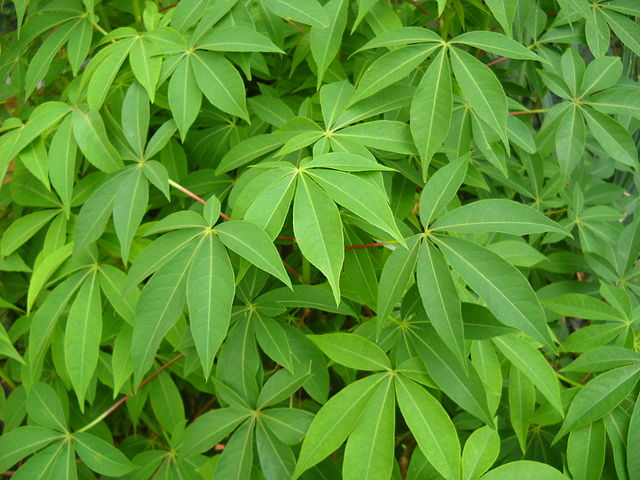Cassava leaves (Manihot esculenta) are a tropical plant that is commonly used for cooking. They taste similar to spinach and are often used in soups and stews. The leaves of the cassava plant are green, long, and narrow, with serrated edges. In this article, you will learn the health benefits of cassava leaves.
Nutritional Composition of Cassava Leaves
A 2015 study was done to examine the potential of cassava leaves in human nutrition.
The study found that cassava leaves are a rich source of protein, minerals, and vitamins. They contain nutrients such as iron, calcium, magnesium, zinc, potassium, vitamin C, and vitamin A. They also contain antioxidants that help protect your body from free radicals.
However, they also contain antinutrients and cyanogens that restrict their use as human food. Furthermore, poorly processed cassava leaves can cause diseases.
Nonetheless, economical detoxification and processing of cassava without degrading the nutrients should be done. And the detoxified cassava leaves could serve as a safe food.
Another study in 2020 showed that cassava was high in nutrients.
Health Benefits of Cassava Leaves
Here are the potential health benefits of cassava leaves:
1. Rich in protein
Cassava leaves have been said to be an excellent source of protein.
The leaves of cassava are edible when cooked or dried in the sun and can contain up to 25% – 32% protein.
Many studies have postulated that cassava leaves be used as a potential protein supplement in animal and human nutrition. They are a rich source of dietary protein.
2. May fight cancer
Cassava leaves contain phytonutrients called carotenoids, which give them their bright color. They also contain chlorophyll.
The carotenoids lutein and zeaxanthin in cassava leaves help reduce the risk of age-related eye diseases such as cataracts and macular degeneration.
Studies also show that these phytonutrients can help prevent lung cancer and heart disease.
Also, cassava leaves contain phytochemicals that have anti-cancer effects, like kaempferol, quercetin, rutin, and hesperidin that protect against tumor formation while inhibiting angiogenesis (development of new blood vessels) during cancer metastasis (spread).
3. Antioxidant powerhouse
Research shows cassava leaves contain many antioxidants like carotenoids (alpha-carotene and beta-carotene), vitamin C, vitamin E, phenolic acids (gallic acid), quercetin, kaempferol, luteolin, and apigenin.
These compounds help prevent oxidative damage to cells by scavenging free radicals before they cause damage to DNA molecules or other cell components. This means they can help protect against oxidative stress-induced aging and certain diseases like cancer.
It also helps your immune system fight off infections by keeping your cells healthy and strong.
4. Anti-inflammatory components
A 2013 study showed that cassava leaves have anti-inflammatory properties
They contain anti-inflammatory properties that can help reduce inflammation in the body by as much as 60%.
The study also found that cassava leaves possess potential analgesic and antipyretic properties.
5. Improve digestion
Cassava leaves contain high amounts of fiber, which helps improve digestion by keeping food moving through your digestive tract at regular intervals instead of sitting still in the stomach.
Conclusion
Cassava leaves have so many health benefits to it. However, more research needs to be done to determine the effects and benefits of cassava leaves.





Nice and very educative artticle Mr.Collins